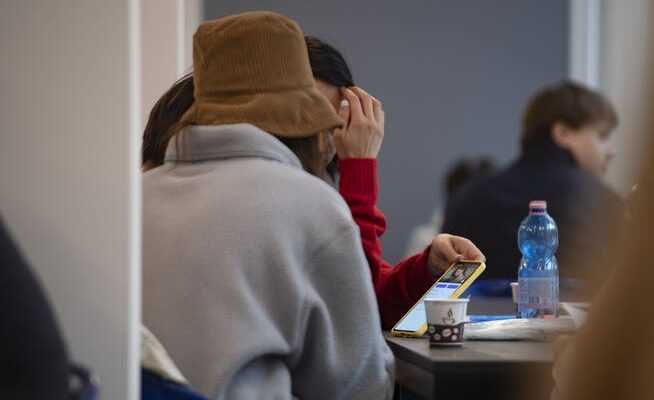The majority of those seeking protection from Ukraine behave correctly. But there are people who take advantage of the Swiss system.
Individuals from the Ukraine received social assistance even though they no longer lived in Switzerland.
Switzerland has never taken in so many refugees in such a short time. More than 50,000 Ukrainians have been granted protection status S after only a rudimentary examination. Those affected are allowed to work and have access to social benefits. Recording such a large number of people caused little background noise. In the meantime, however, there are first reports of people who have misused the S status.
“In some cases we have identified abuses,” confirms Marcel Suter, who chairs the Association of Cantonal Migration Authorities. People from the Ukraine had received social benefits although they had already returned to their home country or to another European country. Ukrainians do not need a visa for the Schengen area. You can travel abroad without a permit. Social assistance was also received without actually being needed, says Suter. There have also been cases of forged travel documents and fictitious rental contracts. “Some people didn’t live where they said they lived.”
Aid in cash only
Suter speaks of a few individual cases. “With this mass of people seeking protection, there are always people who try to exploit the system.” Nevertheless, the authorities would have to be careful and take measures. The Glarner government councilor Marianne Lienhard (SVP), the vice president of the cantonal social directors, shares Suter’s assessment. To prevent welfare abuse, the authorities would apply the same control mechanisms as for other recipients, she says. Benefits received unlawfully would have to be reimbursed. However, this is difficult when someone has already left Switzerland.
Some cantons, such as Bern, only pay out the support money for Ukrainians in cash in order to prevent potential abuse. This is more complex for those affected than a transfer, says Gundekar Giebel, spokesman for the health and social department. However, it is an additional protective measure to prevent payments to people who are no longer in Switzerland.
The social authorities are in the process of gradually comparing the cases of the more than 50,000 people seeking protection. It is often only with a delay that they find out when someone no longer lives where they are registered. Because a significant part of the Ukrainians is housed privately. The cantons are responsible for social assistance, while the federal government decides whether someone is granted protection status. Ukrainians with a valid passport and, under certain conditions, people from third countries who left Ukraine because of the war are entitled to this. The federal government is now considering revoking S status if someone returns to Ukraine for more than 15 days per quarter.
Missing overview
Christine Schraner Burgener, State Secretary for Migration, told the media last week that there were people who tried to obtain S status with fake IDs. The federal government does not yet have an overview of people who have already received protection status in other European countries but have also submitted an application in Switzerland. So far, there are no uniform rules for the registration of Ukrainians in the Schengen area.
The rapid establishment of a European platform for registration is important, emphasized Justice Minister Karin Keller-Sutter (FDP) on Tuesday at the meeting of German-speaking interior ministers. This is the only way to know where those seeking protection are. “In order to maintain the great solidarity, we have to think ahead and develop scenarios to prevent abuse.” Associated Schengen countries such as Switzerland should be able to easily participate in the platform.
